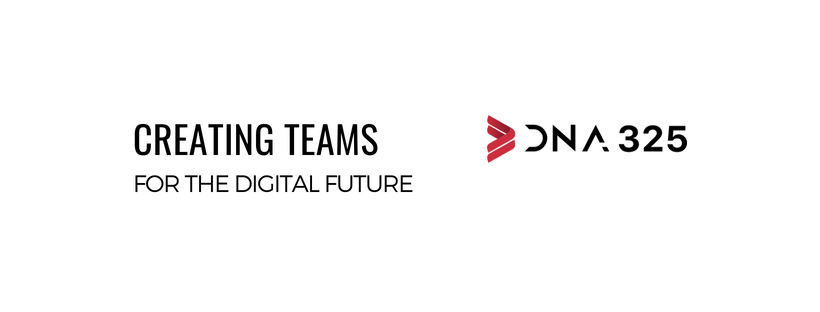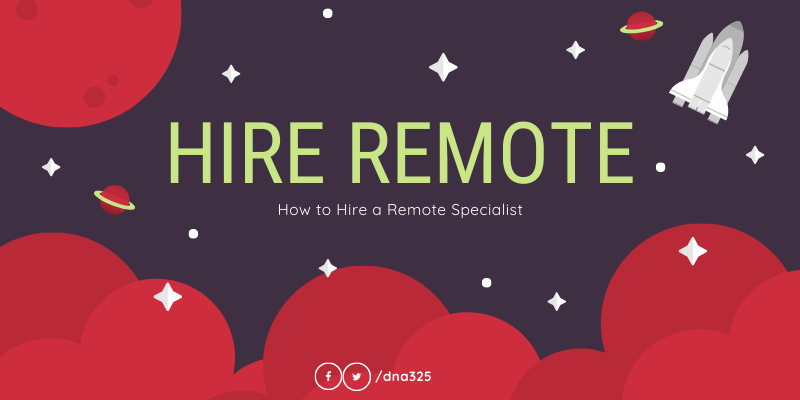Remote is a new reality due to COVID-19
Remote working becomes a norm in many companies due to COVID-19 pandemic and World Health Organization’s calls for physical distancing. This business transformation serves to protect individual employees, to address public health needs, and to provide businesses with new ways to operate and deliver economic value.
Google, Microsoft, Twitter, Cisco, and other big companies are increasingly implementing mandatory work-from-home policy. Medium and smaller businesses follow. There might be some minor challenges with equipment, working environment, and security. And there’s also a mindset problem. Not everyone is psychologically comfortable working remotely. So, if you need to hire new employees, create a new team or plan to start a business in IT, it might be a good idea to look for specialists who are used to remote work.
We hope that the COVID-19 situation will be over soon. But even before, more and more companies were extending their work-from-home and work-from-anywhere policies. And now, some experts start making suggestions that the shift of how we work may become permanent. Employees won’t be so eager to return to offices, and employers may yield since remote working has some significant advantages.
Pros and Cons of remote work
Pros For Employers
- Cost reduction – no need to rent office space, to pay for office supplies, etc. It can save up to approximately $11,000 per employee per year for the company.
- Worldwide talent pool – you are not limited to the specialists who live nearby or who are ready to relocate. And a competitive salary in their region can be lower than that in the region where your business is headquartered.
- Flexible corporate culture – the majority of developers appreciate flexibility, so it will boost the success of the employer brand.
- Diversity and inclusion – underrepresented people can join your company remotely, without leaving their communities, and their comfortable environment.
Pros For Employees
- No need to commute – it saves time and money, and it saves people from stress.
- Work-life balance – the developers can organize their workflow so that they can be more productive.
- Daily conveniences – Employees can customize their home-office as they want, and they can eat healthy food saving money on lunches.
Pros for both sides
- Productivity. There are usually fewer meetings and stand-ups, fewer distractions so the remote workers claim to be more productive. The studies show that the productivity of those who were transferred to the remote work increased (by 4.4% in one study and by 13% in the other).
- Environment protection. Remote work means less traffic pollution and fuel usage, less disposable cups, printer paper, and other office supplies, less energy consumption.
Cons For Employers
- Security concerns. Home networks are known to be less safe, especially with IoT devices connected, users’ accounts are more likely to be compromised when they work from home. It’s especially dangerous if the employees are using their own devices.
- Lack of communication. It can be caused by a lack of experience in remote teams in combination with a lack of training on how to communicate in such a team. Also, you should take care of proper collaboration tools.
- Decreased Employee Visibility. Employers can’t be sure that the workers are actually working. You need to trust them or constantly monitor them (paying for monitoring software, again).
- Infrastructure concerns. Equipping the working places for the whole team of remote workers could be tough. You have to provide (or reimburse) appropriate hardware, software, stable and secure Internet connection, etc.
Note: now, showing their active social position, Microsoft, Slack, Zoom, Google and other companies are offering their tools, updates or consultations for free.
Cons For Employees
- Feeling lonely and isolated. Many people might lack social interaction, like the ordinary coffee point conversations or the ability to approach a colleague and ask a question. Working remotely makes it harder to establish relationships among coworkers.
- Unplugging problems. Though most remote workers report better work-life balance, in some cases people find it harder to stop working or thinking about work when they don’t have a clear physical distinction between home and office.
- Increased distractions. There are multiple distractions at offices, but new, and more significant, may be waiting for you at home: children, other family members, pets, home duties. You really have to be able to focus on your job responsibilities.
Remote workers can be very productive if they have an appropriate mindset. They should be
- able to communicate and establish relationships remotely and not to feel isolated.
- motivated and able to focus on work and resist distractions, and put it aside to have a rest.
- responsible and autonomous, disciplined.
So, if you’re hiring remote specialists, it’s a good idea to search for people with experience in remote teams, as a freelancer or, at least, with proper soft skills.
How to hire remote specialists for your project?
- Decide where you’re going to search
- Create job listing
- Select the best fit among the candidates
- Have your job offer signed
1. Where to search for a remote developer?
It’s not about physical location. It’s about digital channels.
- Job Boards
There are global job boards such as Indeed and Monster, and specialized job boards for developers like Stack Overflow, The Muse, Crunchboard. Also, if you’re prepared to hire abroad, there are usually multiple local job boards, global and specific to the IT industry. Posting your vacancies there is usually much cheaper.
- Social Platforms
Post the job listing on your company pages on LinkedIn and Facebook. Also, there are Telegram channels for job search, for example, in CIS developers and other IT specialists often look for vacancies on Telegram. On social media, you can reach both active job seekers and specialists who are currently not looking for a job. Consider running paid ads.
- Tech events
Previously, networking at conferences, hackathons, and other tech events would help you to get to know specialists. Now, your company might participate in the organization of some online events, so that you can promote your employer’s brand and even collect contact information.
- Referrals
Your employees’ network may be a great source of candidates. By the way, the applicant-to-hire conversion rate reaches 40 percent. Request referrals via email, create internal job-boards. Be sure to offer the appropriate incentive for it.
2. What to include in your job posting?
Information about a job opening in your company should include the standard
- experience and education requirements,
- responsibilities and skills,
- employee value proposition and company benefits,
- how to apply.
But be sure to list also the soft skills necessary for remote work, such as self-motivation and communication skills. Also, it’s a good idea to explicitly mention that the position is remote.
Remember, that your job posting should present your company at its best because you need to attract talents.
3. How to select the right candidate?
After screening the CVs and selecting suitable candidates with reasonable salary expectations, you have to arrange a series of interviews. Plan the interview process:
- First screen
Your HR specialists can conduct the screen in person, via video calls on Skype, Zoom, or messengers. If there are many applicants, automated video interviewing tools can be helpful.
- Coding test or/and Technical interview
Many companies replace the traditional technical interview with a coding test or pair programming. It’s even more convenient for evaluating a remote programmer. However, often you can’t move on without an interview with a technical specialist who will ask the candidate about the previous projects, test their problem-solving skills and ability to communicate technical details.
- Final interview
After a successful coding test, an in-depth discussion with a team lead helps to decide on the right candidate among those who made it to the last round. The final decision is validated.
The questions you should ask a candidate for a remote position:
- Have you worked remotely? What do you like and dislike about it?
- Can you track your KPIs on your own?
- Are you a collaborative person?
- Do you have any concerns about remote work?
4. Job offer
After the final call, send the official job offer and wait for the approval. If you have communicated the work conditions, perks, your company values right, you’ll have your offer signed without any problems or delays.
Challenges of looking for remote developers
- Too many applicants
You can get overwhelmingly many applications from all over the world. At the same time, after hours of screening, you can discover that none of them is suitable.
- No applicants at all
If you happen to formulate your job listing poorly or offer conditions not competitive enough, or you just need a rare specialist with specific skill and experience, you might find that nobody responds to your job ad.
- Managing job postings
Posting and updating the vacancies is time-consuming, especially when you have to identify and use the right job-boards in distant locations. Also, you’ll have to check the responses to all of these job postings.
- Language and culture barriers
Even if you state that you need an employee with fluent English, you might receive multiple applications from those who overrate their command of the language. Also, the culture may make it difficult to start communicating, even if the person in question has all the necessary skills.
The good news is that you don’t have to search for developers and go through the entire recruitment process again and again yourself. Just find a recruiting agency, and it will do the hiring for you.

DNA325 hiring process
DNA325 is a recruiting agency with 12+ years of experience in the tech niche. We know how to hire the best developers in Ukraine and CIS. Our job board and social community of more than 100k active candidates help us to provide best-in-class talent at unmatched speed with unparalleled collaboration.
DNA325 benefits
- Dedicated Project Manager
There will be a project manager responsible for hiring for you. This person will clarify all your needs and find the best ways how we can help you. Your PM will manage the recruiters, administer the database, prepare the reports, and, if required, act as a moderator at your interviews with candidates.
- Pre-screening interview report; Weekly and monthly reports on the progress of work
You’ll get a detailed report on each applicant, including the background, hard and soft skills, and career goals.
Also, you’ll receive weekly and monthly updates.
- English test if needed
Our partners, English for IT school, will check applicants’ English level if necessary. Communication with remote programmers is important. And we can ensure that their “fluent” means “fluent”, and you’ll be able to communicate with your developers without any troubles.
How to hire remote developers with DNA325?
- Kick-off meeting
We discuss your hiring needs and priorities. DNA325 specialists will make sure that not only the essential hard skills are enlisted, but also soft skills, so that we can search for the candidates who perfectly match your corporate culture and can work remotely.
- Researching the talent pool
DNA325 is sourcing specialists who meet the requirements. The agency has a database of 80 000+ candidates and the job board and social community of more than 100 000 active candidates. Other sources are also used. It allows finding IT specialists quickly (within 2-4 weeks).
- Presenting the candidates
After the series of interviews, the recruiters qualify each candidate, write a review for each, and present the most suitable developers to the hiring manager. Then, DNA325 recruiters get feedback and analyze it to tune future searches if necessary.
- Hiring
The recruiters assist in hiring talents in every possible way. DNA325 helps to negotiate, coordinate, and seal the deal.
Summary
A shift to remote work caused by COVID-19 may become permanent. The good news is that there are a lot of advantages of remote working, both for employees and employers. There are also drawbacks and challenges, but they can be overcome, especially now, when the world is finding ways to fight the crisis together. Also, the challenges of hiring remotely can be overcome, and the DNA325 agency can help in that.




